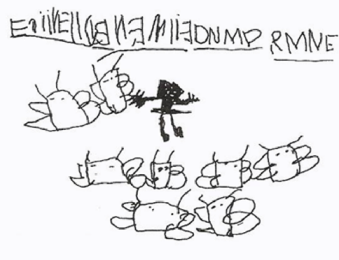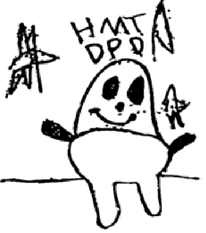30 Ways to Help Your Child with Spelling [Part 1]
Essential, research based, Do's and Don'ts for parents of young writers and spellers
by Geneva Walker

Need Rosetta stone to decipher the meaning of your child's writing? Does that cute "dolfin" report seem like gibberish and even your child can't remember what those letters are!? Ah! Call the teacher at midnight! Or start your child on an intense spelling regime right before bedtime? Make high omega fatty acid shakes for your 3-year old? Right?
Well, not exactly.
You're not alone. In fact, your child is likely "write" where they should be according to research on spelling. "I was hoping for brevity," you say? Here are some research-based Do's and Don'ts for parents of children ages 3-12 who want to assist their child's progress in spelling (Read on to find your child's age group).
For Spellers Not Yet Writing All The Sounds In Words (Primary: ages 2.5-6):

Don't: worry when your beginning speller spells without vowels such as TIGR (tiger), NIT (night), and GRL (girl).
Do: Read to your child on a regular basis. Read and enjoy alphabet books. Read books with rhyme and word play. Help your child rhyme words. Rhyming is an important step early readers need in order to progress.
Don't: discourage invented spelling. Praise invented spelling. It is recognized by literacy experts as an important path to both spelling and reading!
Do: remember that one stage of inventive spelling includes only spelling the first and last consonant or missing vowels altogether, as well as guessing at the vowels in the middle of a word.
Don't: worry when seeing longer words of multiple syllables missing entire sounds or chunks (banana = bana, Chocolate = Clt)
Do: remember that early spellers learn a letter has a name AND a sound. A says "a" like apple. Early spellings learn one letter sound for each letter (a: apple not ape, e: elephant not each etc.)
You can find the short vowels sounded out on youtube, like in this informative yet unusual video:
Don't: forget the power of dictation. Writing down what your child says is actually a simple but effective way to model some important aspects of written language. You might do it after a family adventure, or if they want to write a letter to a family member… writing down a favorite part of a movie or writing on a family whiteboard the dessert for that night. Have your child sit next to you or watch you write.
